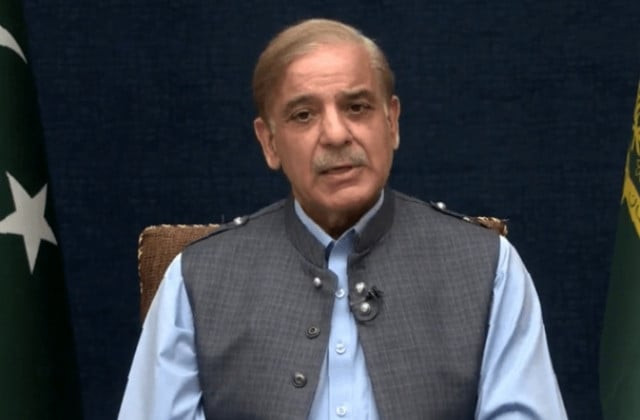PM’s decision to sack 8 boards faces political pressure
Economic load shedding to continue, says power minister

Prime Minister Shehbaz Sharif’s plan to weed out political influence from the boards of eight power distribution companies has hit its first major roadblock as the government has hit the brakes on dismantling these boards after encountering pushback from various quarters.
The decision about the removal of the boards came to a halt days after the prime minister decided to sack the boards on the allegations of causing a colossal loss of Rs589 billion due to “alarming indicators of bad governance and poor performance”.
These boards had been appointed during the tenure of the Pakistan Democratic Movement (PDM).
The development came amid increasing load shedding particularly in areas that have high financial losses. The power minister said that “economic load shedding of up to 16 hours would continue in areas where the losses are 90% and more”.
The sources said that the decision to remove the directors of eight boards and replace them with new people has been halted for a while.
The prime minister had authorised the Power Division to seek the approval of the cabinet committee on state-owned enterprises (SOEs) to remove the existing directors and replace them with new ones. Subsequently, the cabinet committee last week endorsed Shehbaz Sharif’s decision.After the committee meeting, the finance ministry announced last week that the cabinet committee on SOEs sanctioned the Power Division’s proposal to appoint independent directors for specific electricity distribution companies, pending submission to the cabinet.
Sources told The Express Tribune that immediately after the decision was made public, the backers and the members of these boards started pressurising the government.
They also threatened to take the government to court on the grounds that the boards had been constituted for a period of three years and their tenures had statutory protection.
The government, while succumbing to the pressure, did not take the cabinet committee on SOEs recommendation to the federal cabinet last week for the final endorsement before issuing their termination notices, the sources said.
When contacted, Power Minister Sardar Awais Leghari said that the Power Division had withdrawn the summary from the cabinet committee on the SOEs and that a fresh summary would be resubmitted for approval.
Leghari said that there was a complete resolve to reconstitute these boards in a way that the mafias’ back is broken.
However, if the government does not take the matter to the finishing line, it will be a major setback for Prime Minister Shehbaz Sharif who had vowed to break the forces of the status quo.
Finance Minister Muhammad Aurangzeb has already informed the International Monetary Fund (IMF) that the government was in the process of replacing the boards of the power distribution companies.“We are 100% committed to (the reconstitution of the boards) and it will be done,” Attaullah Tarar, the federal minister for information and broadcasting, said while talking to The Express Tribune. Tarar said that there was no turning back on the issue.
The sources said that due to the threat of legal challenges, the government has now started making individual calls to the members of these boards to resign from their positions. They added only a few of them gave the affirmative reply while the overwhelming majority of them refused to resign.
There is a pause but the process has not been reversed and Prime Minister Shehbaz Sharif remains committed to it, according to a senior government official.
PM Shehbaz Sharif during his last tenure had formed these boards between July 2022 and November 2022, primarily based on coalition partner recommendations, resulting in appointments of politicians and their relatives.
The Power Division had informed the cabinet committee on SOEs that due to the dismal state of affairs, all ten government-owned power distribution companies would incur Rs589 billion in losses in this fiscal year.
The government blamed these boards accountable for “poor governance, performance, and service delivery”. The government said that it gave repeated reminders to these boards to improve their performance in which the “alarming indicators of bad governance, poor performance and non-satisfactory service delivery were constantly highlighted”.The government had decided to remove the independent directors of eight power distribution companies, including Faisalabad, Gujranwala, Lahore, Islamabad, Multan, Quetta, Peshawar, and Tribal Areas. It had also approved the new names, based on the board nomination committee headed by Power Minister Awais Leghari.
However, the board of Directors of IESCO reacted to the government’s decision to remove them.
The board members stated that the NEPRA Performance Evaluation Report for the fiscal year 2022-23 highlighted that IESCO consistently met its targets and often exceeded the performance indicators set by the regulator. They further claimed that the IESCO achieved a remarkable recovery rate of 106.32%, surpassing the 100% target, positively impacting fiscal health and distinguishing us from other DISCOs.
The members added that the IESCO had met the mandated 95% threshold for new connections within the specified time frames, showcasing our efficiency in service provision.
However, the power planning and monitoring company –the government entity monitoring boards’ performance – informed the IESCO chief executive that there were excessive transmission and distribution losses and a reduction in computed recovery and mobile meter reading was accurate by 99%, 1% less than the target.
Additionally, the government reported that approximately 4,191 electricity connections remain pending.
The sources said that there is now a possibility that the government will retain some of the existing IESCO board members, including Adnan Baig, due to their better performance compared to others, and may fill the already vacant positions.The government had accused the QESCO’s board for incurring the highest annual losses of Rs138 billion this fiscal year. The decision to replace PESCO’s board was taken due to Rs137 billion losses. TESCO caused Rs51 billion losses –the fifth highest losses of all. FESCO’s board was originally ousted over Rs17 billion in losses.
The decision to sack the GEPCO’s board was taken on the allegation of causing Rs12 billion in losses. MEPCO’s board has decided to be dismissed for Rs 38 billion in losses. LESCO’s board was removed for Rs43 billion in losses.
IESCO’s board was replaced due to Rs41 billion losses.
Load shedding
Meanwhile Prime Minister Shehbaz Sharif on Tuesday directed the authorities to minimise the ongoing load-shedding in different areas through better load management, according to a press statement issued by the PM’s Office.
The premier asked the provincial governments, law enforcement agencies and other departments to extend their support in the anti-power theft drive in the national interest and for the country’s progress, it added.
Power Minister Sardar Awais Leghari said that around 16 hours a day load shedding was going on in the areas where the feeder losses were 90% or more. He said that it was an “economic load shedding” and it would continue until there was an improvement in the recovery of the bills.
Due to high losses, there is also load shedding of over 18 hours a day in Fort Munro – a part of the minister’s constituency that he had won with a majority of 8,000 votes in the February 8 elections.



















COMMENTS
Comments are moderated and generally will be posted if they are on-topic and not abusive.
For more information, please see our Comments FAQ